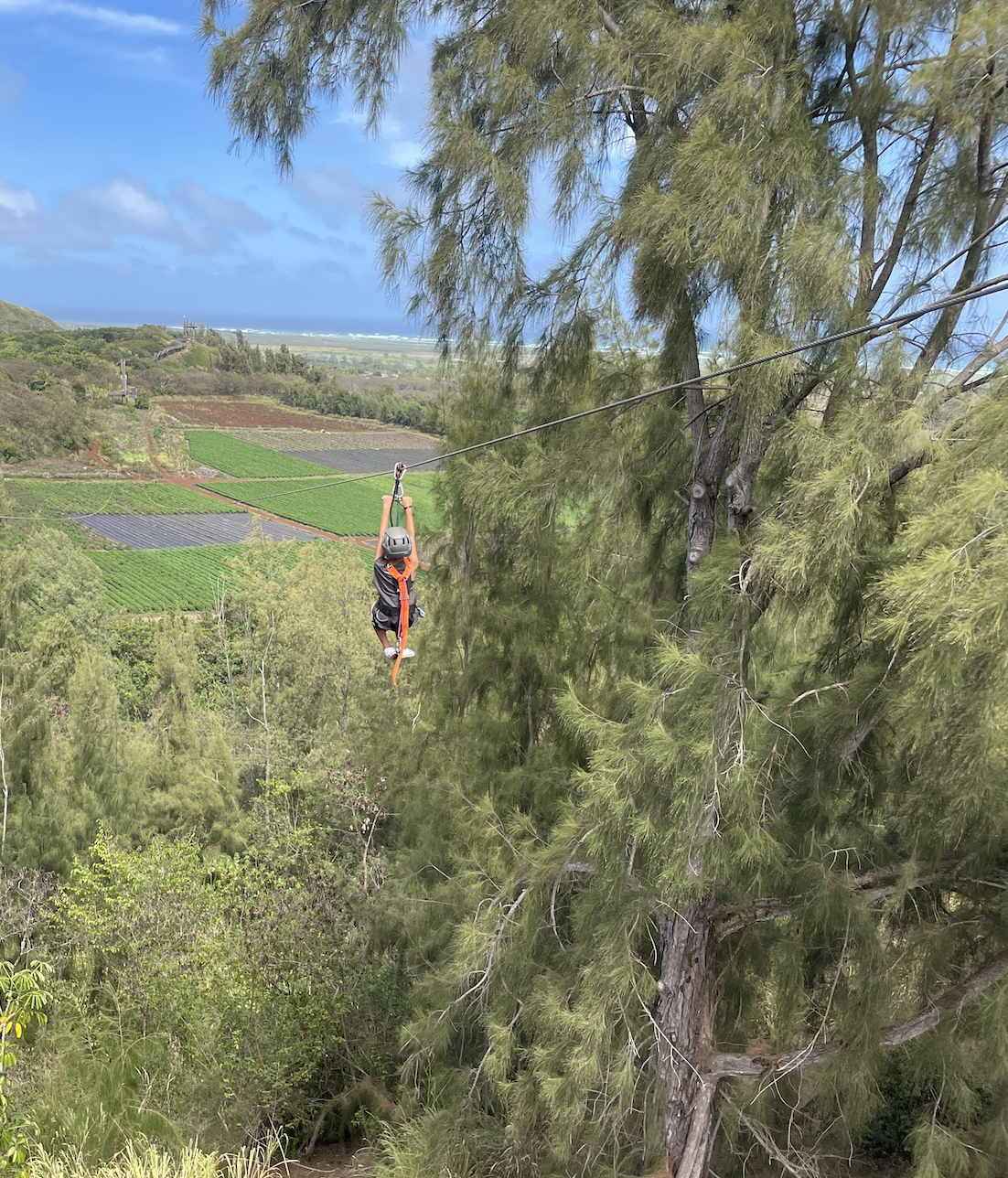Being Brave
My son was 8 when he jumped off his first zip line at the Keana Farms (Oahu). There was some wind, but overall, it was a perfect day for zip lining. There were eight lines to complete; the highest was 1000 feet from the ground and half a mile to the next stop. To prepare for a jump, you have to stand on top of a small wooden box while harnessed into the line. It’s easy for the brain to play tricks on you in this situation; besides, it’s wired for survival and actively assessing risk.
I knew this was a challenge for my son. He is an observant and cautious child (that was partly from me; I was an over-protective first-time parent. I’m getting better 😃). He asked the instructors questions about how to jump, how high the lines are, how far, and what to do if you get stuck. Then he asked his same-aged cousin for them to be the first pair to go! Everyone in the group could tell he was scared, but we cheered him on. I was so proud of him! The two youngest jumpers made the rest of the group (all adults) feel braver that day.
Being brave opens up so many beautiful experiences and opportunities in life. Even at this point in my career and age, my head still sometimes steers toward doubt, fears, unreasonable worries, and thinking that something might not work out the way I want it to. These are the moments where looking back at your accomplishments or tough situations you’ve overcome can remind you that you’re more brave than you might feel right now. When I need a bit of courage to make a bold decision, I think about moments in my life when I’ve had to be brave.
What a great journal prompt! I started listing out some of my brave moments, and it felt great!
I remember getting my first job at Sanrio, applying to Cal, performing at a Pilipino Cultural Night at Zellerbach Hall for the first time, taking the MCAT, applying to med school, then residency, moving out of the house, getting my first job as a Psychiatrist, starting my private practice, now reaching out to a broader audience online (thank you for being here!).
Being brave also led me to the best parts of my personal life: getting married and keeping my 23-year relationship with my husband strong even through tough times, moving to Hawaii right after residency with a two-month-old baby, being a first-time mom at 35, having my second child at almost 40.
Bravery involves complex neural circuits and hormone interplay. For example, it involves the amygdala, which sets off the fear response, releasing cortisol and adrenaline, and the prefrontal cortex to evaluate the threats and decide whether you need to avoid or confront them. The dopamine released in pursuit of facing a challenge and the reward we feel after overcoming it reinforces bravery and trust in ourselves. Of course, bravery has to be tempered when necessary to avoid dangerous situations or unsafe consequences (I’m not encouraging arrogance or even “mania” where there is an unsafe disinhibition due to neurochemical dysregulation, such as in bipolar disorder or substance intoxication).
We can practice little things daily that can help build courage that we can call upon when we need to be brave. Here are some of the things that I do:
Making many small decisions throughout the day, like deciding not to skip a workout or deciding on dinner (this is hard for me)
Working on the hardest task on my to-do list first thing in the morning
Adding the extra rep or the extra weight on my workout to feel strong
Texting or calling out of the blue to reconnect with a friend
Posting a video about mental health on Instagram
Being the first to apologize
Saying no
Is there an area in your life where you need to be brave for now? What is a compelling reason to grow that courage? What will it bring to your life?
CLIMB Works Keana Farms
